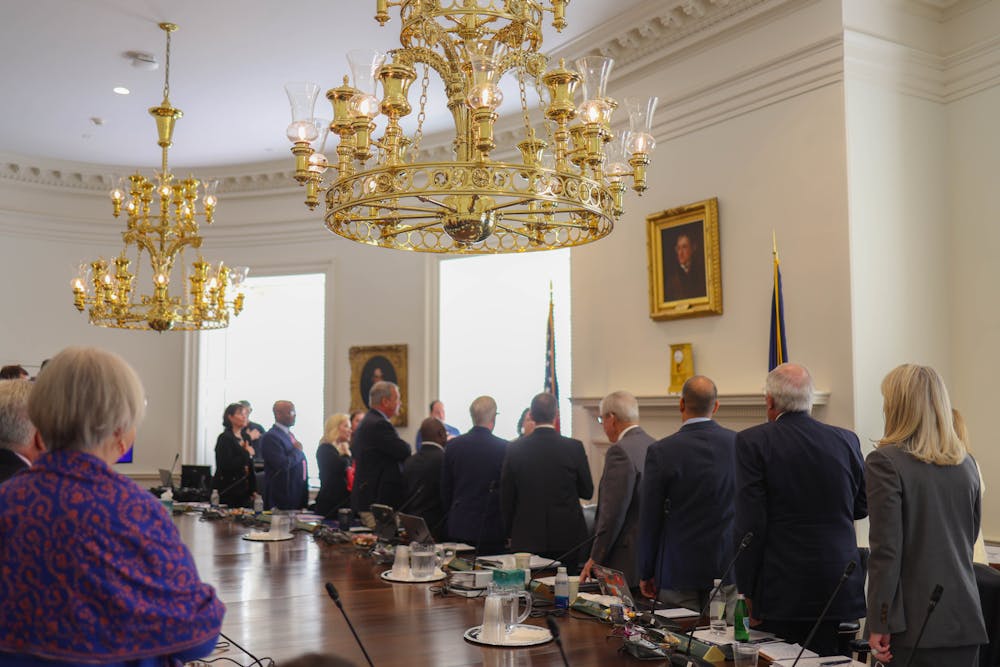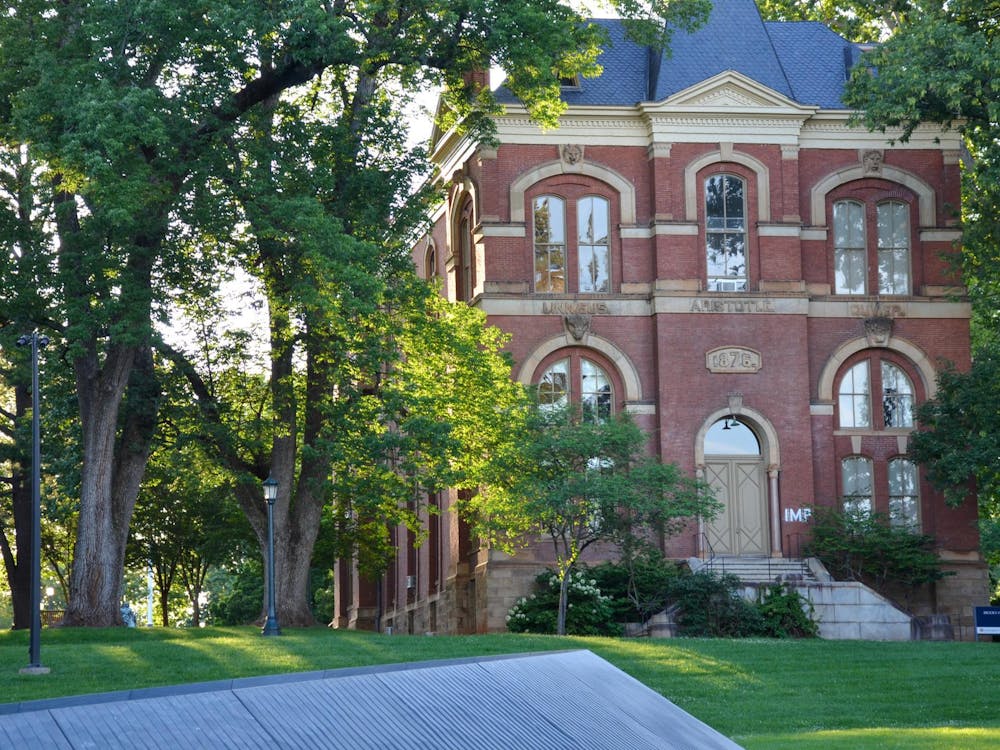The Board of Visitors College at Wise Committee reviewed the search for a new provost and presented successful student recruitment efforts during Friday’s meeting. The Committee said the College will continue to expand its reach through a growing student body along with online education programs.
Chancellor Donna Price Henry discussed the ongoing steps to obtain a new provost for the College at Wise after Provost Trisha Folds-Bennett resigned this summer due to personal and professional reasons.
The College has contracted with Academic Search — a national search process firm — and hopes to permanently fill the role by the upcoming summer. Dean of Faculty Affairs Mark Clark will serve as the interim provost
“I've invited [Ian Baucom, University executive vice president and provost] to participate once we narrow the candidates, to help us identify our new provost,” Henry said. “So we're excited about that.”
In addition to the discussion of a search for a new provost, Jeffery Baylor, vice chancellor for enrollment management, gave reports on the new student recruitment results and plans for the upcoming year. Baylor joined the College last year and has since created a comprehensive plan to continue increasing enrollment and retention.
Last fall, Baylor announced the waiving of the application fee for all applications to the College as a means to decrease barriers for students. This application cycle, applications increased from the historical average of around 950 to over 3,400, Baylor said.
“I will tell you, full transparency, there's a lot of what we call “soft applications” in there,” Baylor said. “But a school like us, we need to identify who is most interested in us. And that's why we use this strategy and it seems to have worked for us.”
To convert applications into successfully enrolled students, Baylor aims to increase the freshman enrollment count by 8 percent and the transfer student count by 5 percent. Baylor said it is critical to track potential students’ interest in housing applications and orientation enrollment to understand the final number of students who will ultimately commit to the College.
This fall, the College planned to have 550 students in campus housing and exceeded that target by 15 students, which required converting additional space into housing. The ongoing expansion plan with the Housing Department involves creating more on-Grounds housing for students as well as partnering with the local economy for more internship partnered programs.
“As we maintain these larger enrollments, [we’re asking] how we can accommodate all of the students that we need to have on campus” Baylor said. “We're working on some strategies in that regard.”
Henry also provided the Committee with reports on this fall’s enrollment. The College at Wise has retained 75 percent of the first year class, an increase from the five year average. Additionally, 83 percent of the students at Wise currently are in-state students.
12 percent are enrolled through the Appalachian Regional Commission initiative — a strategy started five years ago allowing students in a federally defined area from Mississippi to New York to enroll in the College with reduced tuition. Henry said this figure reflects the ARC’s success as a recruitment plan.
“As we began that recruitment, we saw that students were very interested in coming so with our location In the middle of Appalachia, you know, we're surrounded by those other states,” Henry said.
The remaining five percent of the student body are “true” out-of-state students, Henry said.
Looking to reach an even wider audience of students, the College’s implemented the Masters of Education course this fall, offered in-person, hybrid or virtually. Targeted for K-12 teachers, the program will soon offer a library science pathway as well as a training course for school counselors.
“The second track in education will be in counselor education to really serve some of the needs of the region,” Henry said.
Beyond discussion of expansion plans at the College at Wise, Henry said academic research continues to thrive at the College, with yearly grants ranging from a total of $10 and $15 million from groups like the National Science Foundation.
“The College, we do punch above our weight, truly,” Henry said.
At the meeting, Henry also announced that J.J. Davis, University executive vice president and chief operating officer, was the winner of this year’s Crockett Award. This award has been given every year since 1995 to an individual who has made significant advances in strengthening the relationship between the University and the College at Wise.
Davis has been involved with the University’s relationship with College at Wise since 2018. During this time, Davis helped with pandemic planning, long term expansion and overall communication between the two schools, Henry said.
“The big memory that I have is when [Davis] helped us to really stand up our [COVID-19] testing at the College at Wise, so that we could safely reopen on campus classes in fall of 2020,” Henry said.
The Committee on the College at Wise will convene again for the December meetings of the Board of Visitors.







